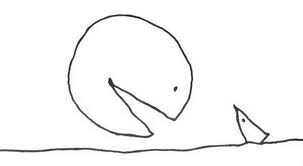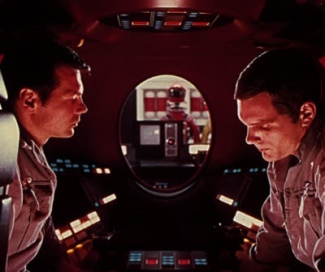
The best minds of my generation have been destroyed by the madness of contriving ways to get people to click on ads, conforming to a conceptual framework of disruption in which ruptures take the form of optimizing commercial capitalism. As the hot air of “technology” and “social” fill up the bubble once more, food for Cacophony fills the streets, the airways and the wires of the Network. The time is ripe for more weird fun from The Cacophony Society.
The Cacophony Society is a randomly gathered network of free spirits united in the pursuit of experiences beyond the pale of mainstream society. We are the punctuation at the end of hypothetical sentences, words in the prose of technological satire, grammarians of absurdist syntax and our numbers are prominent in the flat edge of a curve. You may already be a member!
A common criticism of the Occupy Movement has been that its anarchist structure means it will have little influence beyond the current moment. The counter-example is the San Francisco Cacophony Society (formerly The Suicide Club) which spawned and influenced the Billboard Liberation Front, Burning Man, Fight Club, Ad Busters and Santa Con. Culture jamming continues to be a powerful force in countering the technological scientism of Silicon Valley.
Non Event
Wednesday Dec. 9th all day.Dress like you always do. Do what you normally do.
Object of the event: See if you can pick out the other participants. This was a really big event last year. Let’s see if we can do it again!Sponsored by: The Bureau of Objective Reality
Last Gasp of San Francisco has published “Tales of the San Francisco Cacophony Society.” This new instruction manual and historical document is cornucopia of cacophony and should prove to be an inspiration to a new generation about to be chained to the “promise” of Google Glass.
Frankenstein’s Workshop
Saturday, Sept. 5 8:00 p.m.
Meet: At the N.E. corner of Judah and 7th Ave.
Bring: Recently or about-to-be deceased animal bodies or parts (please no “roadkill”)
Wear: Something you won’t mind getting indelible stains onDr. X and The Other One

For the scholars of Cacophony, and the future generation of pranksters, the holy historical documents (Rough Draft) and other ephemera are being housed in the virtual halls of the Cacophony Society Section of the Internet Archive. The youth of the world have an indispensable new resource in their pursuit of a renaissance of cacophony.






